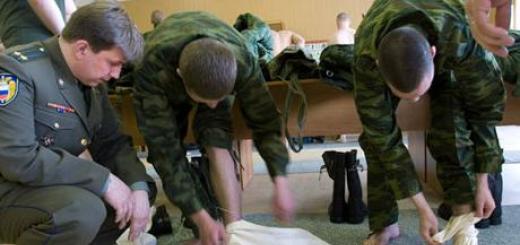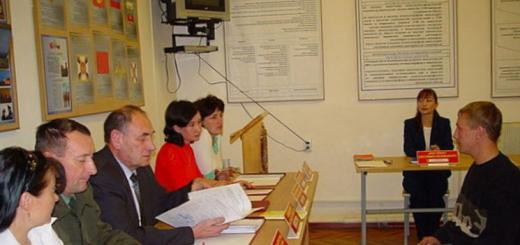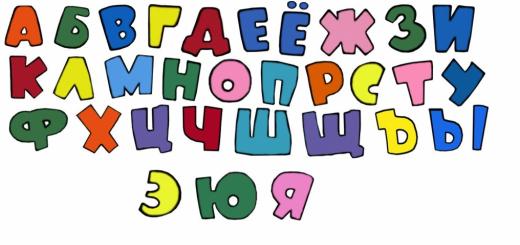We answered the most popular questions - check, maybe they answered yours?
- We are a cultural institution and we want to broadcast on the Kultura.RF portal. Where should we turn?
- How to propose an event to the "Poster" of the portal?
- Found an error in the publication on the portal. How to tell the editors?
Subscribed to push notifications, but the offer appears every day
We use cookies on the portal to remember your visits. If the cookies are deleted, the subscription offer pops up again. Open your browser settings and make sure that in the "Delete cookies" item there is no "Delete every time you exit the browser" checkbox.
I want to be the first to know about new materials and projects of the Kultura.RF portal
If you have an idea for broadcasting, but there is no technical possibility to carry it out, we suggest filling out an electronic application form within the framework of the national project "Culture": . If the event is scheduled between September 1 and December 31, 2019, the application can be submitted from March 16 to June 1, 2019 (inclusive). The choice of events that will receive support is carried out by the expert commission of the Ministry of Culture of the Russian Federation.
Our museum (institution) is not on the portal. How to add it?
You can add an institution to the portal using the Unified Information Space in the Sphere of Culture system: . Join it and add your places and events according to . After verification by the moderator, information about the institution will appear on the Kultura.RF portal.
Literacy in the most direct sense is the ability of a person to write correctly and build his speech in accordance with the rules mother tongue. Literacy can be innate or acquired.
If you write without errors, but at the same time you cannot reproduce a single rule of the Russian language and do not read the classics avidly, you have innate literacy. It is based on a sense of language at the genetic level.
Acquired literacy is the result of self-development and self-improvement, tireless work on oneself.
The path to literacy is a ladder with many rungs
AT modern world Literacy is a calling card of a person. In its absence, it is impossible to get a good well-paid job - HR managers monitor this nuance already at the stage of accepting an application or resume. It has been observed that people who have correct speech, a rich vocabulary and the ability to write without errors, achieve success in any chosen field. A literate person is a priori perceived as intellectually developed, he is respected more than others. But improving literacy is not a one-day affair. You will need patience and perseverance in this noble cause.
Literacy methods
To begin with, determine what are your "weak" sides and what you would like to "pull up": spelling, punctuation, grammar, art of speech. Self-analysis must be objective. Next, create for yourself short plan and move towards the assigned goal using the following literacy development methods.
The first method is to read classical literature. Benefits of reading good books hard to overestimate. Even if you once read all the literature provided for by the school curriculum, there are still many new works that - believe me - will definitely interest you. It is possible that you will comprehend what you once read in a different way - thanks to the acquired life experience. While reading, you can feel the style of the work, the compatibility of words, punctuation features. Your vocabulary. In addition, reading contributes to the development of visual memory. But you need to read slowly, thoughtfully, comprehending each phrase. Pay particular attention to complex words and long sentences with complex punctuation.
The second method is to arm yourself with dictionaries. It can be both a book and an electronic version. If you are in doubt whether to write this or that word, or are faced with a new word, the meaning of which you did not know until now, do not be too lazy to look into the dictionary. As time goes by, you will need it less and less.
The third method is to learn the rules of the Russian language. One rule a day is enough.
The fourth method is to listen to audiobooks. For the development of literacy, it is very useful to listen to the correct "live" speech. Auditory memory won't hurt you.
The fifth method is to write dictations. Start with simple text, increasing its complexity and volume over time.
The sixth method is to make it a rule to write correctly everywhere. Even in in social networks, chats and forums - where it is considered in the order of things to distort words, conveying only their meaning (“finally”, “like a thread”).
The seventh method is to try to make an audio or video recording of your speech. If you listen to yourself from the outside, it will be easier for you to understand what the mistakes of your speech are.
The eighth method is to develop literacy in a playful way. Feel free to get involved in crossword puzzles and computer games that help develop your intellectual abilities (anagrams, charades, rebuses, and others).
The ninth method is to sign up for Russian language courses. The help of a professional has never hurt anyone.
Sources:
- Don't know how to improve your literacy? We will advise!
Learning to write without errors is not easy, because Russian is considered the most difficult language in the whole world. However, such difficulties in the study are opened great opportunities the use of different techniques, decorate written and oral speech.
The first thing to start with is spelling. Any one containing various colorful metaphors with a lot of spelling errors will look frivolous. Quite often there are people with several higher educations who still make mistakes in the text. As a rule, the reason for this phenomenon is the lack of timely study of the Russian language. The basis of correct written speech was precisely the absence of spelling errors.
In order to decorate your speech with beautiful metaphors, a lot follows. Only reading will allow you to unconsciously perceive and memorize the main, and in the future, special techniques in. You can study everything - periodicals, newspapers, magazines, modern and classic. In any of them you will get exactly what you need. And after a while, you will notice your own - understandable and competent language.
Pronunciation out loud will help you learn without mistakes. This will greatly reduce spelling errors. Thus, you will be able to control the logical integrity of the entire text.

Instruction
Having set yourself the goal of learning, do not be too lazy to look into the bookstore and buy educational software. For example, it's a good idea to start with a book that summarizes all the rules that are in 5 through 9. In such a manual, most of the most basic rules of morphology, spelling, syntax, punctuation and other sections of grammar will be collected. Having carefully worked through such a textbook, you will solve many spelling questions for yourself.
If you spend an hour or two on the Internet every day, it will be useful whenever there is doubt about the spelling of a word or phrase, check yourself on the reference and information portal of the GRAMOTA.RU portal at www.gramota.ru. On the home page you can check the word in several dictionaries at once, and in the "Help" section, ask the portal specialists the answer, or find it earlier question asked on a topic that interests you.
When typing text in Word documents, in general, you can focus on the built-in spelling and punctuation check, however, you should be aware that the Microsoft office suite “knows” far from all Russian words and rules. Therefore, check controversial words with the help of dictionaries or the GRAMOTA.RU portal.
As soon as the child begins to learn how to write his first letters, teachers at school, together with their parents, want to teach him to write without errors. But not all children are the same, and spelling is easy for someone, and someone cannot cope even with the most in simple words.

Instruction
First of all, it is not necessary to refer to the fact that literacy is inherited. Literacy needs to be developed, and for this you need to try very hard.
Related videos
note
Very often the cause of incorrect spelling in children is the fear of making a mistake. In this case, it is necessary to engage more with the child so that he feels more confident and is not afraid to make a mistake.
When teaching a child to write correctly and correctly, it is recommended to advise him to say to himself what he wants to write. In this case, auditory memory is also included.
Despite the fact that numerous methods of teaching literate written speech have been developed for secondary school students, literacy is sometimes "lame" among quite diligent students. The ability to spell words correctly in writing depends, alas, not only on how conscientiously the student approaches the learning process. However, schoolchildren and their parents should not be upset - there is a way out.

You will need
- - a selection of books that can interest the student;
- -half an hour of free time daily to discuss what has been read with the child;
- - the opportunity to observe the progress of the child in the development of literate written speech.
Instruction
Pick up fascinating literature for children and youth that would not seem boring to a child of school years, and at the same time would be written full-fledged, rich and varied. Of course, it is worth starting from how a teacher of literature builds his educational policy, but in any case there should be a place for a small amount of "out-of-class" reading. Our goal is regularity, not a large number of tireless text for every day.
Prepare your child for the fact that he will spend some time every day with a book, and not on a voluntary-compulsory basis, but certainly of his own free will - after all, how to refuse such pleasure? Try to remember moments from your own biography when reading really gave you real pleasure, and share your memories with the student. The main thing here is to prepare and create favorable conditions for daily entertaining reading, everything that follows will turn out to be a matter of technology.
Try from the very moment your child (nephew, student, ward) begins to deal daily with a small amount of interesting printed text, constantly monitor its spelling. Be interested in current grades, get acquainted with his dictations, checked and evaluated by the teacher. Based on these data, try to draw conclusions about the progress and the benefits that reading brings to you who cares.
Try to experiment with genres and styles of works that you think should captivate the child. While a more or less standard set of classics is recommended for middle schoolers, your pet's tastes can be simply unpredictable. Since we are now talking not about aesthetic education, but about raising the level of literacy, then in order to achieve the latter goal, we can give up some stereotyped pedagogical principles. In any case, if the child regularly spends at least some time with the book, there should be fewer errors in his notebooks.
Related videos
Useful advice
Never force your preferences on your child. fiction- your goal now is simply to get him to read, whatever kind of reading it may be.
Remember that it is systematic reading that is important for the development of visual memory, that is, you need to read a little every day.
Related article
Sources:
- Spelling literacy of students
It is believed that a person can be called literate when he knows all the rules of the Russian language. Nevertheless, often people who have never learned the rules write without errors, and those who diligently crammed Russian language textbooks at school turn out to be illiterate. In order to write correctly, it is necessary to pay attention not only to the rules, but also to other ways to improve literacy.

Instruction
Use dictionaries and reference books. Whenever you come across an unfamiliar or expression, find its meaning, ask about its origin. Use new ones as often as possible. But do not get carried away - a large number of pompous, complex and incomprehensible expressions in a speech will not make you. The purpose of vocabulary replenishment is to learn how to accurately select the most appropriate word for a given context. Precise words you are not sure about using dictionaries. Refer to dictionaries to avoid repetition.
Every time you need to write something, practice. Carefully check and edit what you write. Reread the text several times, thinking about how accurately the thought is expressed, whether it will be clear to the reader, how the same meaning can be formulated more clearly and concisely. Weed out everything superfluous from the text. Check the spelling of difficult words in the dictionary, refer to the rules of punctuation if you are not sure about the placement of signs. Apply all these recommendations not only to texts that will be other people - emails, SMS or statements on the forums, but also to your entries in the diary, diary, notes and tasks.
Read more. AT modern life a person pays little attention to books, preferring mass media. classical fiction, scientific works and articles in magazines and newspapers will help improve literacy and enrich vocabulary. Visual information trains memory, which improves spelling.
Useful advice
If you do not have dictionaries, use electronic versions that can be found on the Internet.
Sources:
- How to improve speech literacy
Written literacy is a kind of calling card of a person. If he writes with numerous spelling and grammatical errors, in many cases it will be difficult for him to qualify for a prestigious high-paying job. Therefore, increasing the literacy of writing for many people is quite an urgent task.

Instruction
Knowledge of the rules is a necessary, but not the only condition for competent written speech. A literate person may no longer remember the rules that he once learned in - he just knows exactly how to write. To achieve such "innate" literacy, one must read high-quality Russian literature. Correct construction phrases, the writing of words by the classics of Russian literature should be deposited in the mind, become a kind of template.
A remarkable example of Russian written language is the work of Konstantin Georgievich Paustovsky. If your home library does not have his books, download their electronic versions from one of the online libraries.
When reading Paustovsky's books, listen to the sound of the classic's speech. To its melodiousness, melody, rhythm. correct written speech verses - should flow smoothly, smoothly, with pauses in the right places, emphasizing its rhythm. The correct rhythm of the text is the basis of competent written speech.
Start mastering the correct rhythm by writing simple phrases of several words, then combine these phrases. For example: “It was a beautiful day. A light breeze carried the smell of flowering acacia. First, combine these phrases without a comma (this is wrong): “It was a fine spring day, a light breeze carried the smell of flowering acacia.” According to the rules, you need to separate with a comma, since each of them has a subject and . But if you just listen to the rhythm of the phrase, then catch a pause in the place where it should be. By learning to feel the rhythm of phrases, you can correctly place punctuation marks without thinking about the rules.
To master the rhythm, listen to audiobooks. Listen to how the reader pronounces phrases, in which places he makes punctuation pauses. When you write your texts, listen to their sound and put them in places that logically follow from the rhythm of the sound.
Use simulator programs to improve written speech, they can be found on the Internet. Such programs allow you to check various aspects of literacy, it is possible to choose the complexity. By working with such programs, you can significantly improve the quality of written speech.
There are children who, from the very beginning of learning to write, make practically no mistakes. Teachers praise them, and parents of less literate classmates set an example for their children and hope that their child will learn to write as well and correctly as Tanya, an excellent student. Meanwhile, the example of a classmate alone is not enough here. Develop language sense child possible, but this will require a set of measures.

You will need
- - books;
- - computer with text editor;
- - an account in a social network;
- - "Erudite" and other games with letters;
- - a collection of outdoor games for attention;
- - desktop printed games;
- - foreign language teacher.
Instruction
Develop phonemic awareness child. If you didn’t make sound models of words before school, it’s time to do it. Explain to him what sounds exist and how they are indicated in the letter. Not all words are spelled the way they are heard, and the child needs to learn the difference.
If there are no speech disorders, but there is obvious inattention, try to save yours from this shortcoming. There are many games for attention, and they can be played at any time, including on a walk. Choose those during which each participant will have to clearly perform the task. These can be classics, when it is necessary to strictly observe the sequence of movements, exercises with a rope, with a ball. Do not neglect word and board games when you need to accurately count, for example, the number of steps or name the city with the same letter as the name of the previous one. Store-bought or homemade letter games such as "Make a Word" or "Scrabble" can be of great help to you. The child understands the task, and he will involuntarily strive to compose words correctly.
Try to join child to reading. Not all children love books, but in this situation a computer or reading device can help you a lot. e-books. Many modern children are more willing to perceive text from the screen than from paper pages. Moreover, the desired work can often be found on the Internet rather than in the library. If you follow the rules of hygiene, then no harm to vision child the computer will not inflict.
Your thoughts, a chronicle of events or a description of something. Try to know to bring the reader up to date, answer the question: what is the article about. The conclusion summarizes what was stated in the article.
word games
So that the time in the queue, the road or in the process of any other waiting is not wasted, but passed as interesting and useful as possible, you can play with words. These can be rhymes, games of cities, a request to name words that begin with certain syllables, or make sentences in which each word begins with a certain letter of the alphabet.
Crosswords
Many children's magazines have a variety of crossword puzzles for children of different ages. There is no need to neglect them, because crossword puzzles perfectly train the brain and help to make speech literate.
Communication with parents
Children learn to speak with the help of their parents, so parental speech should always be as literate as possible. If the child makes mistakes, you need to correct him with a response sentence.
Word games on paper
New words and rules should be remembered not only by ear, but also visually. For this, word games are best suited with the help of letters written or printed on paper. For example, the gallows, the "Field of Miracles", the compilation of short words from one large one, the snake - writing a long chain of words, each word of which will begin with the last letter of the previous one.
Posters and posters on the wall
While learning to read, the child should regularly pay attention to the letters so that they are better remembered. And along with the letters, new words will be remembered, which will lead to an increase in vocabulary. Various posters and posters can be hung on the walls, on which there are images and captions to them. Themes can be very different - from flowers and animals to modes of transport and geometric firms. Such posters will be an ideal assistant for the correlation of the visual image with the word.
Dictionaries
Every child should have orthographic dictionary. In addition to professional ones, you need to create your own dictionary, which will contain the most difficult words, most often causing difficulties. As soon as a few words have accumulated (5-10-15), you can make crossword puzzles from them, write short dictations, play “find the mistake”.
Parents should remember that such exercises with a child should take place in the form of games in a favorable environment, and not turn into a painful and unloved activity that discourages the desire to learn.
There are a number of ways to acquire literacy. These include working with dictionaries, memorizing the basic rules of the Russian language, which, in general, are contained in school textbooks, writing dictations, reading works of art etc. It will be very useful to use several methods. And the main thing here is systematic and purposefulness.

Working with dictionaries
In the home library, you must have at least one explanatory and spelling dictionaries. The most popular and useful are explanatory dictionaries edited by Ushakov and Ozhegov. Every day you need to look at and memorize the spelling and meaning of at least five to six words. Pay special attention to the placement of the accent. This will allow not only to accurately write down new words, but also to pronounce them correctly, and will also significantly expand your vocabulary. Even if you think that you have a fairly rich vocabulary, there will always be interesting and unfamiliar words, as the language is constantly evolving, replenishing new vocabulary, some words become archaic, leave everyday speech, being used only in.
Russian language rules
It would not be superfluous to recall what was studied in the Russian language. There are enough of them. The presence of such a set of rules is primarily associated with language reforms, with the formation of a language on the foundation of pre-existing dialects. These phenomena have given rise to exceptions to these rules, which also should not be overlooked. Moreover, almost every rule has an exception. In this regard, the Russian language is quite difficult to learn for foreigners.
Home dictations
Daily recording under dictation of texts after a certain time will undoubtedly give its results. This is a method proven over the years to memorize the spelling of hitherto unfamiliar words, punctuation marks, and sentence construction. It has been used for centuries. However, those who have more developed memory associated with motor skills and sound perception achieve the greatest success in this. This is where consistency plays a big role. Half an hour of classes a day is enough to start writing more competently in a couple of months.
Reading Literature
No less useful in this case will be reading fiction. The classics are preferable, since it is there that all the beauty and splendor of the Russian language will open before you. All kinds of metaphors, allegories and others artistic techniques used by the authors make the language special and unique. Where else can you find such an abundance of vocabulary! It is in the literature that all possible ways of constructing sentences, the influence of emotions on the punctuation marks are found. At the same time, reading should become a good habit.
Related videos
Tip 18: How to improve your writing skills yourself
With the increasing availability of the Internet, the possibilities of communication in this truly worldwide network are expanding. So great to chat with different people, learn something new, do business. However, it is very important to communicate correctly. How to independently increase the level of your literacy, expand your vocabulary?

Even if you did not study well at school and have a weak "3" in the Russian language in your certificate (which, most often, corresponds to objective assessment"2"), as an adult, you can significantly improve the literacy of writing, learn to express your thoughts in an original, interesting way.
Read!
Start with the works of great writers - learn from them, look for original expressions, rare words. Force yourself to read at least one story (a short story or a chapter of a novel) a day. If you do not know the meaning of some words, be sure to look them up in the explanatory dictionary.
Useful advice: a person who reads a lot quickly begins to write more competently, however, in order to further speed up this process, read long and complex words several times, slowly, preferably out loud.
I want to draw the reader's attention to the following problem: in books published after 2000, there are much more errors than in Soviet ones. Try to choose books published before 1980-90.
Write!
Of course, learning to write correctly without practice will not work. Divide "writing" into several stages. Start with texts, then start dictating yourself (ask for help from relatives, acquaintances, or write from audio recordings of books). After the number of errors made in the texts is significantly reduced, proceed to the presentations (pay attention not only to literacy, but also to the logic of presentation of information, the artistic merits of your text). Remember that the complexity of the texts you work with should gradually increase.
Useful advice: the ideal option at the stage of written training is to find an assistant who will keep you company, will dictate, check your texts. The opposite situation is also useful - checking someone else's dictation, presentation.
After training on other people's texts, move on to creating your own. Start, for example, keeping a diary, writing
The Russian language, as well as the culture of speech, is one of the main subjects in school curricula. However, knowledge is not always assimilated by students properly, and even more often they are simply lost over subsequent years of life. Meanwhile, it is very important to know the Russian language and be able not only to express yourself correctly, but also to write correctly. It’s funny and sad when you hear how TV presenters or politicians are talking some kind of rubbish, pronouncing words completely wrong, or when you read in newspapers, magazines or the same Internet, seemingly serious and useful articles, but you see that the words in them are written haphazardly, for example, instead of “obvious” they write “on the face”, instead of “to mom” they write “to mami”, instead of “bad weather” they write “bad weather”, etc. But, in fact, it doesn’t matter what goals and objectives you set for yourself, you need to know the Russian language, and at least for the simple reason that by doing so you express respect for your native speech and culture, show respect for yourself and the people around you .
And today we will talk about how it is possible for an adult. But before describing the ten ways we have prepared for you to close knowledge gaps, we would like to point out one extremely important point.
In fact, improving your literacy is quite simple, but you should understand that it will not work in a week or two. At best, this process can take you several months, or even years. Therefore, having decided that you really want to master your native language to the proper extent, make sure that such books as a grammar guide and a dictionary of the Russian language become your faithful companions. It is not necessary, of course, to always have them with you (although you can download them to your tablet, laptop or smartphone), but you need to make them your desktop manuals.
And if suddenly in some situation you experience difficulty, for example, you are not sure exactly how a word is spelled or what it means, do not neglect the use of a dictionary. Likewise, when you learn a new term, take a moment to figure out its exact definition. By doing this, you will always improve your literacy and expand your vocabulary.
So, if you are ready, we bring to your attention ways to eliminate gaps in literacy in the Russian language.
10 ways to close gaps in literacy
Each of the presented methods is interesting in its own way. You can use them both individually and in combination. By the way, if you give preference to the second option, your progress will be more impressive, and the process itself will be much faster.
The first way is to read
Reading is perhaps the best and surest way to improve literacy in the Russian language. But given the fact that many people are used to being intellectually lazy, they get most of their information by listening to the radio, watching news, thematic programs, movies, and so on. This, of course, is good, but, unfortunately, it does not make it more competent (in the literal sense of the word). Reading will help you to increase the level of knowledge of your native language and improve spelling.
The fact is that books contain an incredible amount of words. And while reading, a person receives several advantages at once: firstly, his vocabulary expands, and secondly, the skill of combining and combining lexical items, and, thirdly, when reading, the brain visually fixes correct writing various terms and concepts, which reduces the number of spelling errors in the letter (by the way, if you read ours, you can pass a small spelling test). And another significant advantage of reading is the expansion of horizons.
The second way is to write
While reading sessions are extremely helpful, spelling in particular can be improved by writing more. Give it at least 30 minutes every day, and very soon you will notice that when writing various words you have gained confidence. In addition, it allows you to learn all sorts of subtleties of punctuation. But, of course, this method will work only if you always check what is written (correct spelling of words and punctuation marks).
If you are concerned about the question - what exactly to write, then absolutely everything will do here. You can write a short story from your life, describe the past day, summarize the content of your favorite movie. It is also helpful to keep a diary. By the way, if for some reason you don’t feel like writing with a pen on paper, use a text editor on your computer. If you wish, you can even set yourself the goal of running your own blog on the Internet on interesting topic(and if you like it, over time you can make it one of the sources of income or even the main one).
The third way is to check and eliminate doubts
Good ways to learn Russian are not only reading and writing, but also constant self-examination and elimination of your doubts. You are probably familiar with the situation when you write something or even just talk about something, and you have doubts that you wrote or pronounced it correctly (this also includes the question of the semantic correctness of the use of terms and concepts).
So: such situations should not be considered something out of the ordinary, everyone faces them. But the question is what will you do with it. We recommend that you spare no time and devote it to finding answers and eliminating doubts. Look on the Internet or open a dictionary to make sure you haven't made any mistakes. By the way, it is precisely such cases that allow memorizing information best of all, because even a slight uncertainty about something is always a microstress, accompanied by an emotional reaction. And, as you know, what causes emotions in a person is remembered for a long time. Thus, by eliminating doubts, you will learn the lessons learned for life.
Method four - use online services
Today, almost every person has access to the Internet, and if ten years ago it could be called a curiosity, now having a tablet, smartphone or laptop at hand has become as natural as brushing your teeth in the morning. In addition, there are now access points to the World Wide Web in many public places and institutions.
Firstly, you can find specialized Russian language courses on the Internet. These include 4brain, as well as materials from such platforms as Universarium, Intuit, Lectorium, PostNauka, Lecture Hall and others (you can read more about them). And secondly, there are many “lightweight” services where it is possible, for example, to simply enter a word and find out its spelling or meaning. Also, such resources often offer grammar checks, punctuation, etc.
Therefore, when any difficulties arise, feel free to refer to such sites as gramota.ru, therules.ru, online.orfo.ru, text.ru, languagetool.org and others. These, of course, are not Russian lessons, but still good ways of learning.
Method five - install the "Word of the Day" application
The Word of the Day app is a very simple yet effective tool to improve your vocabulary. Very well, by the way, Igor Mann wrote about him in his book "". The application is completely simple to install on a computer or gadget - here.
Once you install it, your vocabulary will increase by one word daily. Someone may say that there is nothing special about this, but it would be wrong. The fact is that every day we all communicate, using for the most part only words we know, and we learn new ones only by chance. Therefore, the "Word of the Day" will be a good alternative to these "accidents".
And if you make simple mathematical calculations, then in a year you will learn 365 new words, in two years - 730, in five years - 1825, etc. Agree, a good result? Thus, after even one month, you will notice that your speech has become richer and your writing style more perfect. Plus, looking at the word displayed on the screen, even if you know it well, you will memorize its spelling.
Method six - learn the rules
If Russian language lessons are a stage you have already passed, and, for example, a tutor is irrelevant for some reason, but you need to improve your literacy, learn the rules yourself. Ideally, this method involves learning one rule daily. But if you take into account the fact that, most likely, you have a job, hobbies, family affairs, and so on, and the rules need not only to be memorized, but also to be learned, you can devote two or three days to studying one thing.
You can, for example, learn today, practice a little, and tomorrow repeat the rule and practice again. And the day after tomorrow - perform several exercises without repeating the rule.
If such ways of learning the rules of the Russian language become an integral part of your life, over time you will master this subject perfectly. And if you have nowhere to hurry, do it calmly, because even a slowly walking one will reach his goal, while crowds of onlookers will stand and watch. And you can learn and study these very rules with the help of all the same textbooks, collections of rules and online services.
Method Seven - Reread and Edit
This method is very suitable for those who, for some reason, have to or simply like to communicate with friends, relatives, colleagues or partners through special programs like Skype, ICQ, QIP, Viber, WhatsUp, or even social networks like Vkontakte and Odnoklassniki. ". It sounds a little unusual, but even such communication can be useful to improve your literacy.
While most people prefer to express themselves with "thank you", "I like it", "sss", "priva" and "goodbye", we advise you to approach the process of online communication consciously. Just write literate and correct messages. As soon as you have written something, do not rush to press Enter, but re-read what you have written, correct the mistakes, put the appropriate punctuation marks, and only then send.
Let it take you a little more time, but you will learn how to write correctly. And if you dig a little deeper, then the newfangled abbreviations so beloved by many simply worsen the culture of speech, reduce brain activity, and adversely affect attentiveness, concentration and the development of thinking in general.
Eighth method - study with a tutor
Tutoring is one of the best ways to improve literacy in any subject, including the Russian language. A competent tutor always uses an individual approach to teaching, takes into account the characteristics of his student and his knowledge and skills. If something is not clear, he will explain it intelligibly, help to eliminate gaps and deal with difficulties. Among other things, professional specialist can significantly speed up the educational process.
Note that you can hire a tutor at any age, and there is nothing wrong with that. On the contrary, if a tutor helps you, then you are interested in getting new information, correcting mistakes, your education, after all. For this reason, if you do not want to engage in self-study, feel free to hire a personal teacher and study with him.
But still, we note that such classes can hit your pocket, because the services of qualified teachers are not cheap. And if you deal with unskilled professionals, it can end up wasted money. However, if the issue of costs does not bother you much, finding a pro will not be difficult.
Method nine - Russian language course from 4BRAIN
Separately, about our course in Russian. If we consider different ways of studying the subject, it is far from the last and not even the ninth (as in this article) place among them. It is professionally compiled - the best pedagogical materials and experience of our colleagues. Yes, and we approached its preparation with all seriousness and the desire to make really useful concentrated material.
The course includes trial testing, which allows you to identify problem areas in your knowledge of the Russian language, an individual study schedule that allows you to optimally distribute time and workload, many daily short classes and various ways intermediate control of assimilation of the material. In total, the program allows you to improve the Russian language quite well in just three weeks.
The Russian language course from 4BRAIN is designed for people from 10-12 years old who are familiar with the basic rules, but experiencing certain difficulties. To learn more about the course and get more information, go to. We are happy to offer you a complete and adaptive training program.
Method ten - other options
In conclusion, let's say a few words about other options for troubleshooting problems with the Russian language. Among them are such ways of studying and testing knowledge as solving crosswords and crossword puzzles - this allows you not only to learn new words, but also to memorize their spelling. It also includes all kinds of tests, puzzles, puzzles and anagrams that develop cognitive and intellectual abilities.
And if you want to combine business with pleasure, you need to look more documentaries, speeches of speakers and public people. So you can learn to speak correctly, learn new words and notice the mistakes that others make.
Remember that it does not matter which way of learning Russian you like best: tutor and private lessons, online classes, reading or something else, the most important thing is to work on yourself and strive to improve your results. We wish you success and unwavering motivation in this matter!
Literacy has always been considered an essential quality educated person occupying a worthy place in society. Development modern technologies, the emergence of social networks and mass online communication for many modern children and adults has become an excuse for illiterate writing. However, it is a mistake to believe that the ability to correctly present your point of view orally or in writing is a useless skill that can be neglected.
Errors when filling out business papers writing, reporting, or communicating with clients via email or snail mail can take a toll on your reputation as a professional. AT Everyday life also, at any time, it may be necessary to drop a couple of lines to relatives, friends or neighbors, and no adult will want to blush for annoying mistakes in words and punctuation marks.
If you have problems with spelling, punctuation or vocabulary, don't lose heart. At any age, it is not too late to learn to write without errors and work on your literacy, the main thing is to approach the problem with all seriousness and regularly improve your skills.
Along with spelling successful person should keep the intellectual functions of the brain in good shape. BrainApps, a fitness resource for the brain, will help him with this, classes on which involve daily individual training. Even the busiest person can find 15 minutes a day to improve their own intelligence.
How to become literate in Russian
There is a common misconception that literacy is one of the innate qualities of a person, that is, the ability to write and speak correctly to one degree or another is inherent in every person from birth. Some schoolchildren and adults refuse to work on spelling after several failures and believe that they simply do not have the innate skills for beautiful and correct writing.
However, absolutely anyone who does not have deviations from a medical point of view can become literate. And although literacy is accessible to everyone, the disappointing statistics recent years shows a decrease in its level among children and adolescents. The reasons for this unpleasant phenomenon are:
- Decreased interest in reading fiction. Readers are much less likely to write with errors, but modern child usually prefers playing on a computer or smartphone to a collection of fairy tales or short stories;
- Massive communication in social networks. Online correspondence rarely involves compliance with all the rules of spelling and punctuation, since each of the interlocutors seeks to express their opinion as soon as possible and in parallel is engaged in other matters;
- Lack of parental involvement. Many parents do not pay due attention to the development of literacy in a child, believing that completing school assignments is more than enough. But many factors influence school performance, and the example of a mom or dad who regularly read books and always write without errors is much more effective. Therefore, before learning how a child can learn to write without errors, you should work on your own level of literacy;
Writing texts without errors and correct speech provide many benefits at any age. You can always make a good impression on your interlocutor, colleague or leader, easily draw up any document and be able to help your child with the lessons. It remains only to find out exactly how to become literate in the Russian language<>and how long it will take. Ideally, due attention should be paid to correct writing from school or even from preschool age. But if this moment is missed, then regular independent studies will come to the rescue, which do not require huge financial investments, but require discipline and systematicity.
There is no magic method by which you will forget about misspelled words and misplaced punctuation marks in two weeks. Only self-education and long-term painstaking work on yourself will give the desired result, which will remain with you for life.
9 working ways to learn to write well
There are indeed several effective ways accustom yourself to good writing. To write without errors you can:
- Read regularly. It is with reading that the correct, beautiful oral and written speech begins. Visual memory plays a big role in spelling, and you will gradually be able to remember how to spell a particular word. In order to benefit from reading, one should be selective in the choice of literature. Domestic classical works are best suited for working on improving literacy. Do not think that the classics are necessarily boring and drawn out, everyone can choose a genre to their liking and enjoy reading. It is necessary to read every day for at least an hour, thoughtfully and in a calm atmosphere. Soon you will notice that your speech has become richer, more figurative, and there are fewer errors in words.
- Learn the basics. In addition to fiction, pay attention to working with reference books and textbooks of the Russian language. This is one of the most effective ways to learn how to write without errors and build sentences correctly. Remember the rules and be sure to reinforce the theory by completing practical tasks.
- Acquire and use a dictionary regularly. Every time you don't know how to spell a particular word exactly, look in the spelling dictionary. Forming this useful habit will allow you to get rid of mistakes quickly enough, so keep the dictionary on your desktop or other prominent place so that it is always at hand;
- Write from dictation. Ask relatives or friends to dictate to you texts from a collection of dictations several times a week, so you can quickly find gaps in your knowledge and direct self-study in the right direction.
- Work on bugs. Feel free to write down the words that are most difficult for you in a separate notebook and reread them every day. This is an excellent training of visual memory, which will allow you to write even the most intricate words and phrases correctly over time.
- Improve memory. To do this, you can learn by heart your favorite poems or passages from prose. This method will also improve oral speech, and repeating the learned material aloud trains diction skills. If learning by heart does not suit you, then simply rewrite the texts, paying special attention to difficult words and sentences;
- Find friends by interests. Nobody wants to write with errors, it irritates any person and many would like to improve the quality of their writing. Classes in a pair or group are more disciplined, in addition, you can help each other and check the assimilation of new knowledge.
- Contact a professional. A Russian language tutor may be needed not only for a student before passing exams. Several full-fledged classes with a specialist will fill in the main gaps and develop a further plan for self-education.
- Apply knowledge in practice. Write yourself notes and reminders, write out your favorite quotes from books, instead of Email write ordinary paper letters to friends or relatives, sign and give postcards. Such little things will always keep you in good shape, and force you to focus on the rules of spelling and punctuation;
If you regularly use these simple ways how to learn to write without errors on your own, you will soon notice positive changes. However, it is necessary to maintain literacy at the proper level throughout life, so all of the above recommendations are relevant for any person who is actively engaged in self-development.
How to learn to write without mistakes from childhood
Some children learn spelling much more easily than others their age. To understand how such children learned to write correctly, it is necessary first of all to pay attention not to their school performance, but to classes with their parents at home. A child can be gradually taught to read from the age of three, and for this it is not necessary to force the baby to intensively memorize letters and syllables. First, you should awaken interest in the fascinating world of literature, read fairy tales and children's stories every day.
Reading and writing must be developed in parallel, in a playful, accessible form for the child. With school-age children, it is imperative to work on mistakes, additionally explain incomprehensible or difficult moments. Parents who shift all responsibility for their child's literacy to teachers are unlikely to be satisfied with the result of his education. Therefore, you should know how the child will learn to write without errors and actively help him, overcoming learning difficulties together.
It is usually difficult for children to memorize many rules of grammar and punctuation, therefore, together with spelling, it is recommended to develop memory and attentiveness. To do this, there is a BrainApps resource, the games of which are suitable for both adults and children.
Greetings, dear friends! Pavel Yamb is in touch. Despite the fact that, according to statistics, Russia is one of the most literate countries in the world, since almost all of its citizens can read and write, I very often come across such words as “sympathetic”, “birthday” or “birthday”, etc. .
Do you agree that well-written articles are more pleasant to read than text teeming with errors? It seems that at school everyone had lessons in Russian literature and language, but the majority, it seems, either lost the acquired skills or did not listen to the teacher at all. So how do you refresh your memory? How to "raise" literacy for a great, powerful adult? After all, smart people achieve success faster!
Let's first take a sober look at the situation, at what level is our literacy. Not satisfied? Let's start enriching knowledge.
What and how to read?
One of the ways to become a Russian language guru, which we are constantly advised to do, is to read more. On the one hand, it’s right: when you read a lot, you remember more words and know how they are spelled. However, not all literature is equally useful. The best option for useful reading is the classics. Lots of interesting works not included in school curriculum, we read some in the abbreviated "demo" version, while others were forgotten, so pleasant emotions are guaranteed. For example, from textbooks, the only thing that I remember is The Master and Margarita.
There is such a technique as spelling reading. Its principle is that children are taught to read as it is written, and not as it is customary to say. Particular attention is paid to long and complex words that are pronounced in syllables. In this case, auditory memory is connected to visual memory. This is how we quickly remember how words are spelled. Then, using the “like-dislike” method, you can intuitively determine how an unfamiliar word is spelled.
While reading, you will feel the style, see the compatibility of words, and expand your vocabulary. What if not reading contributes to this?!
Desk book? Dictionary!
Raising the level of literacy is not a matter of one day or even a few months. If you decide to thoroughly improve your literacy, then your reference book should be a dictionary of the Russian language. At the slightest uncertainty in the correct spelling, you must refer to it. Met an unfamiliar word? Also open the dictionary, learn the meaning and how to write. Another good way replenishing your vocabulary.
Don't be afraid that voluminous volumes will fill the room. After all, electronic versions of all dictionaries are freely available on the Internet. Here, dic.academic.ru.

At modern people there is also an opportunity to improve literacy online with the help of special resources. For example, there is such a useful service - Gramota.ru, with explanations, rules, reference materials. We go to the site, type a dubious word in a line, press Enter - and the correct answer is in front of our eyes. Comfortable! And this is not the only site of its kind.

Take a look at resources such as:
- Total Dictation is a complete online school, everything is free;
- "True Words"– mother tongue courses for children of primary and high school, linguistic games, online olympiads. The service is paid, but it is possible to try the free version;
- "I can write"– Russian language lessons, paid, free courses, webinars, textbooks, tests;
- "Education in Russian"– free interactive textbooks, online platforms for learning Russian as a foreign language;
- "Write live" – free course, which will help rid your texts of verbal garbage;
- textologia.ru – online magazine about the Russian language and literature.
We play and improve literacy
Do you want to learn how to write articles and make money online? Right now I am recruiting for free education according to the author's method. SIGN UP WITH PAVEL YAMBU
You can learn literacy easily and playfully. Do you like to solve crossword puzzles? Wonderful! So, learn new words and remember how they are spelled. Word puzzles, tests, anagrams, charades, rebuses also perfectly develop our intellectual abilities.
If you can’t achieve good results on your own, attend literacy courses. With the help of experts, things will go much faster. These courses are also available online.
There are also services-assistant to improve literacy, for example, Tutoronline.ru. Leave a request and study with a Russian language or literature tutor via Skype.

Compliance with the requirements of the Russian language is mandatory by default in any field. So, we remember or learn the rules. In the case when the work is checked before sending, then why not ask him to report each violation language norms? Learned the rule - increased literacy. If you act like this all the time, you will be able to compete with the inspector.
But not everyone has a colleague proofreader. Then your salvation is textbooks. Don't be lazy, open them often, read the rules yourself!
Today - dictation
In my opinion this The best way literacy as soon as possible. You don't even need helpers. interactive dictations to insert missing punctuation and spelling on the net is enough. The benefits are twofold: interesting and informative.

Write!
Write every day, so you will increase the level of literacy in the near future, develop the skill of recognizing mistakes at the level of intuition. Constantly, a lot, interesting! Innate literacy not everyone can boast, you have to work hard to get such a useful advantage. The more we write, the fewer mistakes we make. Proven in practice!
There is another way to increase the knowledge of the language as calligraphic writing. Calligraphic handwriting develops concentration, helps to fix the phrase in memory and even remember the rule! Write slowly - this method also works when typing on a computer. Think, not rush at full speed.
Interestingly, the original erroneous spelling sticks in memory. A persistent skill of writing with errors appears. To get rid of it, you have to write the word correctly at least a hundred times. After about a hundred repetitions at one time, I stopped writing “Hello” - I constantly skipped the letter “v” at the skill level.
You know, even without being super literate, you can make good money. The higher your knowledge of the language, the higher the earnings.
Audiobooks
Are you familiar with the expression "a comma is asking here"? The logic of presentation, the rhythm of the sentence suggest that a punctuation mark is needed here. To feel this rhythm, listen to audiobooks, pay attention to the spoken phrases. So you will learn to determine in which places the “comma is asking for”.
Situations out of the ordinary
Unfortunately, or fortunately, the Russian language is actually very flexible. If a keyword customer found an error, do not rush to correct. It is possible that this is a special requirement, that is, as it should be. The reason is simple. Search queries are typed with errors by most of the Internet users. When the number of misspelled requests increases noticeably, some webmasters use such words as keywords.
Some statistics
According to statistics, the Russian language consists of approximately 500,000 words. But in everyday life we only use about 3000.
According to textologia.ru, a student's vocabulary is 2000 - 5000 words, an adult owns 5000 - 8000 thousand words, an adult who has received higher education has about 10,000 in reserve, and 50,000 are available to the erudite.
So, to summarize, how to quickly increase the level of literacy:
- Read a lot, especially classical literature.
- Look into the dictionary often, both in volumes and on the Internet.
- Let online resources like Gramota.ru become your friends.
- Solve crosswords, charades, puzzles.
- If you cannot achieve results on your own, study with a tutor.
- Attend literacy courses.
- Write.
- Listen to audiobooks!
And for now you. Pavel Yamb was with you. Be literate, write comments on this article without errors :)
P.s. What words are you having trouble with?
And here's a cool tip for today's topic:










